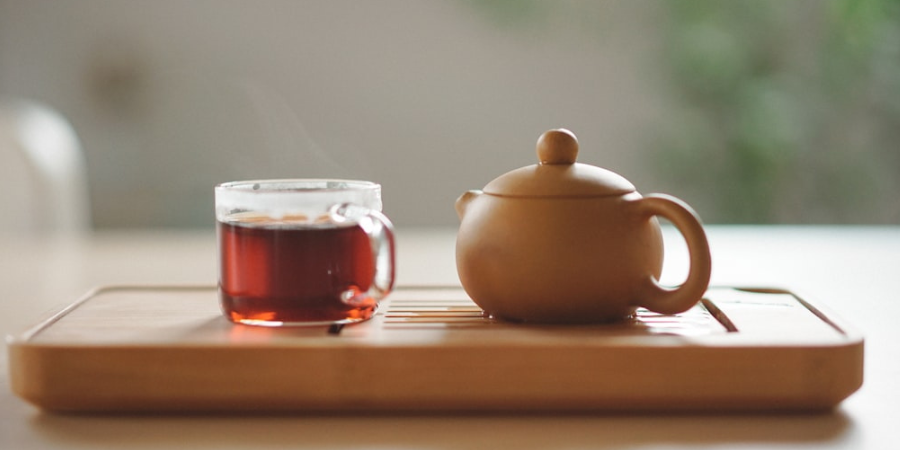
Tea: The Ultimate Alternative for Coffee Lovers
In a world dominated by a certain popular beverage culture, there exists a versatile and enticing alternative that has stood the test of time. From soothing herbal blends to robust varieties, this alternative offers a diverse range of flavors and health benefits.
This exploration delves into the rich history, cultural significance, and myriad of options available in this realm. Whether you're seeking a morning pick-me-up or a calming evening ritual, this alternative provides a customizable experience that caters to various tastes and preferences. Join us on a journey to discover why this choice is not just a beverage, but a lifestyle that will nourish your overall wellbeing.
Indian Black Tea: A Strong and Flavorful Option
When it comes to black tea, Indian varieties are known for their robust flavors and strong brews. This section will delve into the characteristics and caffeine content of Indian black teas, as well as compare them with Chinese black teas.
Characteristics and Caffeine Content:
Indian black teas, such as Assam and Darjeeling, are renowned for their malty, bold flavors. They are often described as having a full-bodied taste with a rich aroma. In terms of caffeine content, Indian black teas are known to have higher levels of caffeine compared to many other tea varieties. This makes them a popular choice for those seeking a strong and energizing cup of tea.
Comparison with Chinese Black Teas:
While Indian black teas are bold and robust, Chinese black teas, like Keemun and Lapsang Souchong, offer a different flavor profile. Chinese black teas are known for their smooth and sweet taste, often with subtle floral notes. Additionally, Chinese black teas generally have lower caffeine content compared to Indian black teas. This contrast in flavor and caffeine levels provides tea enthusiasts with a diverse range of options to explore and enjoy.
Additional Information:
Apart from their flavor and caffeine content, Indian black teas are also valued for their health benefits. Studies have shown that black tea, in general, is rich in antioxidants that can help improve heart health, aid in digestion, and boost immunity. The strong flavors of Indian black teas make them a perfect choice for pairing with spicy or savory foods, as the tea's robust taste can complement and enhance the flavors of the dishes. This is of course particularly relevant for coffee lovers who are used to stronger flavour notes.
Furthermore, the diverse geography and climate of India contribute to the unique characteristics of Indian black teas. The Assam region, for example, with its humid climate, produces bold and malty teas, while Darjeeling, known as the 'Champagne of Teas,' offers delicate and floral notes in its black teas. This variety in flavor profiles within Indian black teas showcases the richness and complexity of the tea culture in India.
Indian black teas stand out for their strong flavors, high caffeine content, and diverse range of options. Whether you prefer the boldness of Assam or the delicacy of Darjeeling, Indian black teas offer a sensory journey that is both invigorating and satisfying.
Green Tea: A Low-Caffeine Energy Boost
Green tea, a popular beverage known for its numerous health benefits, offers a refreshing alternative to coffee for those looking to reduce their caffeine intake. In this section, we will delve deeper into the world of green tea, exploring its rich history, diverse varieties, and additional benefits beyond being a low-caffeine energy booster.
Benefits for Coffee Quitters:
- Reduced Caffeine: Green tea contains less caffeine than coffee, making it a suitable choice for individuals sensitive to caffeine or looking to cut back on their intake.
- L-Theanine: Green tea is rich in L-theanine, an amino acid that promotes relaxation without drowsiness, providing a balanced energy boost.
- Antioxidants: Green tea is packed with antioxidants, such as catechins, which help protect cells from damage and support overall health.
- Weight Management: Studies suggest that the catechins in green tea may help boost metabolism and aid in fat loss, making it a potential ally for those on a weight management journey.
Exploring Green Tea Varieties:
Green tea comes in various forms, each with its unique characteristics and flavors:.
- Matcha: A finely ground green tea powder known for its vibrant green color and earthy flavor. It is rich in antioxidants and is traditionally used in Japanese tea ceremonies. Tea Rebellion's award winning matcha is linked here.
- Sencha: The most popular variety in Japan, sencha has a refreshing, grassy taste and is enjoyed both hot and cold. It is a staple in Japanese households.
- Genmaicha: A blend of green tea leaves and roasted brown rice, genmaicha has a nutty flavor and a toasty aroma. It is often referred to as 'popcorn tea' due to the rice grains that pop during roasting.
Additional Benefits of Green Tea:
- Improved Brain Function: The combination of caffeine and L-theanine in green tea can have synergistic effects, improving brain function, mood, and cognitive performance.
- Heart Health: Regular consumption of green tea has been linked to a reduced risk of heart disease and stroke, thanks to its antioxidant properties that help lower cholesterol levels and improve blood flow.
- Skin Health: The antioxidants in green tea may help combat skin aging, reduce inflammation, and promote overall skin health when applied topically or consumed regularly.
Incorporating Green Tea into Your Lifestyle:
Whether you prefer a hot cup of matcha latte or a refreshing glass of iced sencha, green tea offers a versatile and healthful beverage option. Experiment with different varieties, brewing methods, and recipes to discover your favorite way to enjoy this ancient elixir. Remember to savor each sip and embrace the holistic wellness that green tea can bring to your daily routine.
Section: Oolong Tea: The Flavorful Middle Ground
Oolong tea, known for its diverse varieties and unique taste profile, occupies a special place in the world of tea. This section delves into the nuances of oolong tea, exploring its varieties and the distinctive position it holds between green and black tea.
Varieties and Taste Profile:
Oolong tea comes in a wide range of varieties, each offering a unique flavor profile. From floral and fruity notes to toasty and creamy undertones, oolong teas cater to a broad spectrum of taste preferences. The level of oxidation greatly influences the taste, with lightly oxidized oolongs resembling green tea with a fresh and floral taste, while heavily oxidized ones lean towards the richness of black tea with a more robust flavor.
Position Between Green and Black Tea:
Oolong tea is often referred to as the 'middle ground' between green and black tea due to its partial oxidation process. While green tea undergoes minimal oxidation and black tea is fully oxidized, oolong tea falls somewhere in between, typically ranging from 10% to 70% oxidation. This unique processing method results in a tea that combines the freshness of green tea with the complexity and depth of black tea, offering a balanced and nuanced drinking experience.
Health Benefits of Oolong Tea:
Apart from its delightful taste, oolong tea offers a plethora of health benefits. Rich in antioxidants, oolong tea is known to boost metabolism, aid in weight management, and promote heart health. The presence of polyphenols in oolong tea contributes to its potential in reducing the risk of chronic conditions like heart disease and type 2 diabetes.
Brewing Techniques and Serving Suggestions:
To fully appreciate the flavors of oolong tea, proper brewing techniques are essential. The water temperature and steeping time vary depending on the type of oolong tea, with lighter teas requiring lower temperatures and shorter steeping times, while darker oolongs benefit from hotter water and longer infusion periods. Oolong tea can be enjoyed plain or with a touch of honey or milk, depending on personal preference.
Cultural Significance and Traditions:
Oolong tea holds significant cultural value in regions like China and Taiwan, where tea ceremonies and rituals are an integral part of social gatherings. The art of serving and enjoying oolong tea is steeped in tradition, with specific teaware and etiquette followed to honor this revered beverage.
Oolong tea stands out as a versatile and flavorful option that bridges the gap between green and black tea. Its nuanced taste profile, health benefits, and cultural significance make it a beloved choice for tea enthusiasts seeking a harmonious blend of freshness and depth in every sip.
Tea Blends and Recipes for Coffee Drinkers
For those looking to explore beyond the realm of coffee, there are several enticing tea blends and recipes that can offer a delightful alternative. Here are some options to consider:.
-
Fruity and Floral Iced Tea: Incorporating floral elements like hibiscus into your iced tea can provide a refreshing and aromatic experience, perfect for hot summer days. These floral infusions not only add a burst of color to your drink but also bring a delicate and fragrant taste that can elevate your tea-drinking experience.
-
Golden Milk Recipe as a Caffeine-Free Option: Golden milk, made from a blend of turmeric, ginger, and other spices mixed with milk (or a dairy-free alternative), offers a soothing and caffeine-free beverage that can be enjoyed hot or cold. This ancient Ayurvedic drink is not only comforting but also boasts anti-inflammatory properties, making it a nourishing choice for those seeking a cozy and healthful alternative to coffee.
In addition to these two options, exploring the world of tea opens up a vast landscape of flavors and benefits. From earthy green teas to spicy chai blends, there is a tea variety to suit every palate. Tea also offers a range of health benefits, from antioxidants in green tea to relaxation properties in chamomile. By incorporating tea blends and recipes into your routine, you can not only expand your beverage choices but also discover a whole new world of tastes and wellness benefits.
Whether you're looking to reduce your caffeine consumption, explore new flavors, or simply enjoy a cozy drink on a chilly evening, tea blends and recipes provide a versatile and satisfying alternative to coffee. We invite you to join the Tea Rebellion newsletter so you can learn about the origin and differences and help train your tea palate.
